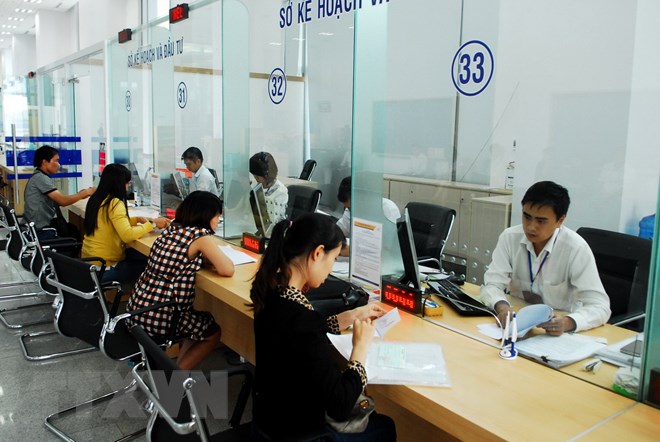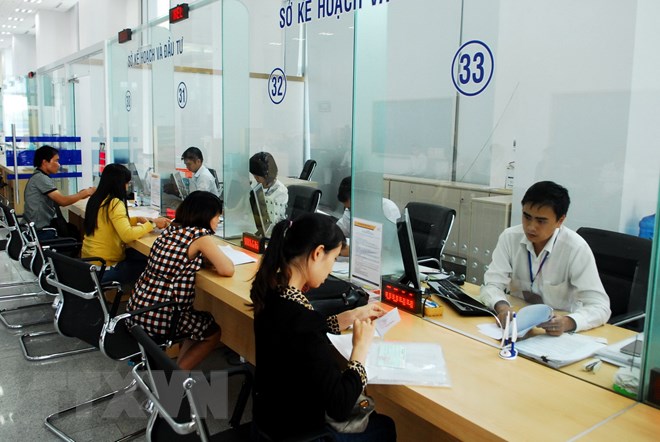
As many as 8,082 enterprises were established in March with total registered capital of nearly 81.16 trillion (3.57 billion USD), reported the Ministry of Planning and Investment (MoPI).
The figures represent a rise
of 2.8 percent in the number of enterprises and an 18 percent drop in the
registered capital compared with February.
On average, the registered capital of individual businessesdecreased by
20.3 percent to 10 billion (440,000 USD). The number of registered labourers
for the new businesses in the reviewed periodsaw a modest decline of
three percent to68,979.
Besides this, 1,801 firms returned to operation in March, down 22.3 percent
from the previous month.
According to the MoPI, the country saw 26,785 new enterprises in the first
three months of this year, with total registered capital of around 278.49
trillion VND (12.26 billion USD).
Business establishment procedures
are handled at the single-window section of the Department of Planning and
Investment of Binh Duong province (Photo: VNA)
The number was up 1.2 percent and while capital rose 2.7 percent as compared
with the same period last year, said the MoPI.
Average registered capital in each enterprise established inthe first
quarter was 10.4 billion VND, a year-on-year increase of 1.5 percent. The
number of workers employed in newly established enterprises was 225,389 people,
down 22.7 percent from the same period last year.
A total of 8,449 enterprises resumed operations in the first three months,
while 8,115 ceased operations or were awaiting dissolution and 3,321 others
completed dissolution procedures.
Source: VNA
According to data from the Hoa Binh Provincial Party Committee, the industrial production index for the first six months of 2025 is estimated to have increased by 20% compared to the same period last year. This marks the highest year-on-year growth rate for this period since 2020.
In the first six months of 2025, Hoa Binh province’s export turnover was estimated at 1.145 billion USD, marking an 18.11% increase compared to the same period in 2024. Import turnover was estimated at $ 804 million, a 17.15% increase, which helped the province maintain a positive trade balance.
The lives of the ethnic minority farmers in Tan Lac district have gradually improved thanks to the new directions in agricultural production. This is a testament to the collective strength fostered through the professional associations and groups implemented by various levels of the district’s Farmers’ Union.
With the motto the "product quality comes first,” after nearly one year of establishment and operation, Muong village’s Clean Food Agricultural and Commercial Cooperative, located in Cau Hamlet, Hung Son Commune (Kim Boi district), has launched reputable, high-quality agricultural products to the market that are well-received by consumers. The products such as Muong village’s pork sausage, salt-cured chicken, and salt-cured pork hocks have gradually carved out a place in the market and they are on the path to obtaining the OCOP certification.
In the past, the phrase "bumper harvest, rock-bottom prices" was a familiar refrain for Vietnamese farmers engaged in fragmented, small-scale agriculture. But today, a new spirit is emerging across rural areas of Hoa Binh province - one of collaboration, organisation, and collective economic models that provide a stable foundation for production.
Maintaining growing area codes and packing facility codes in accordance with regulations is a mandatory requirement for agricultural products to be eligible for export. Recently, the Department of Agriculture and Environment of Hoa Binh province has intensified technical supervision of designated farming areas and packing facilities to safeguard the "green passport" that enables its products to access international markets.



